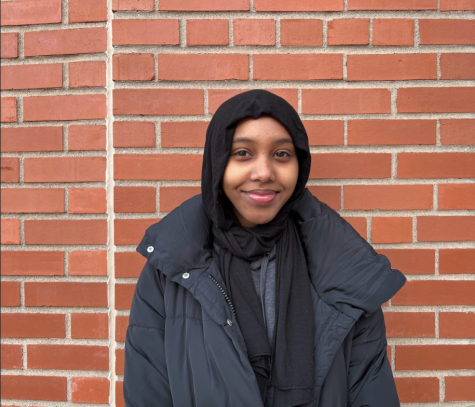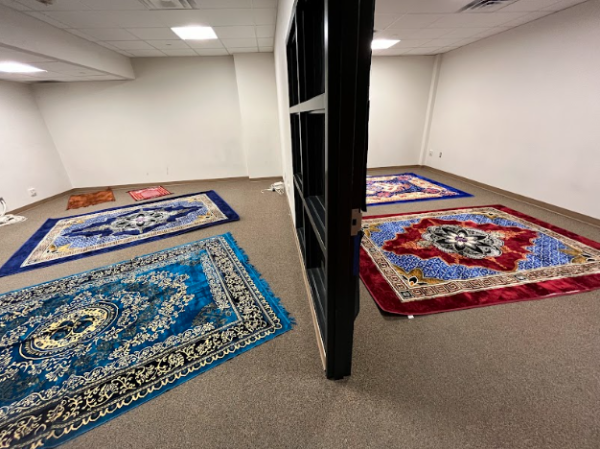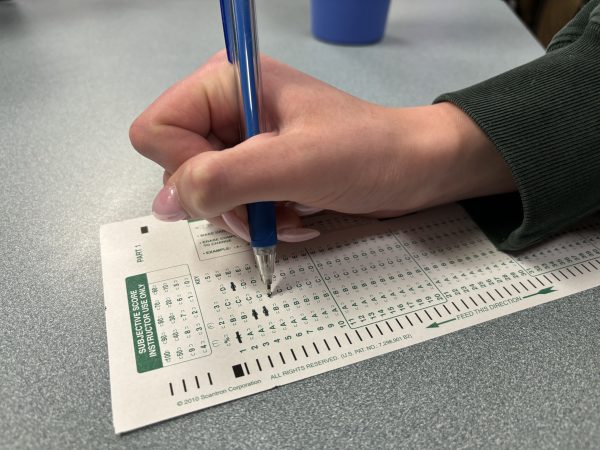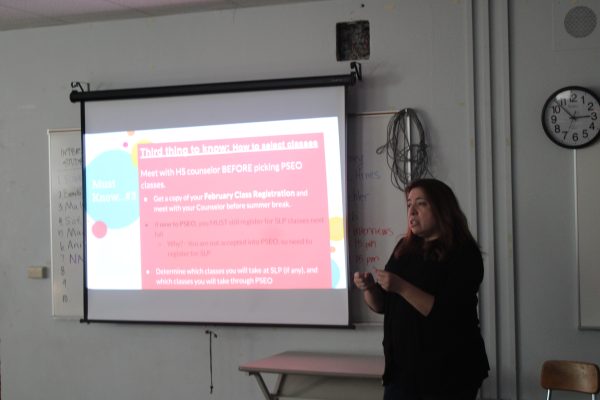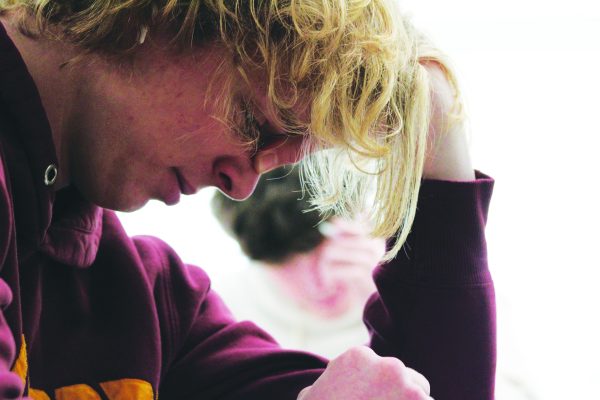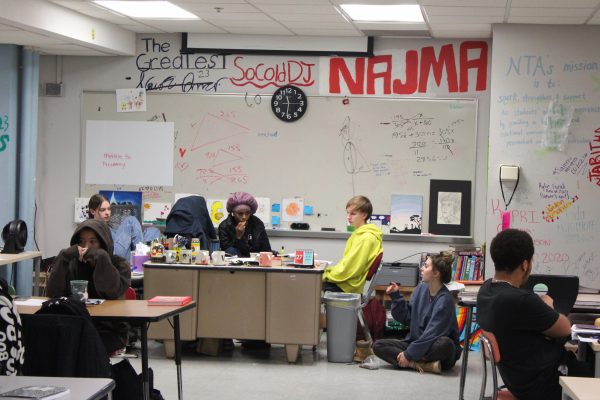Plea for gender equality during Women’s History Month
Women shed light on their experiences
Band director Steve Schmitz celebrates Women’s History Month with a presentation for his students March 12. The United Nations designated March as Women’s History Month in 1987.
March 17, 2022
It’s easy to get caught up in the everyday routine and forget about those who made sacrifices to work towards equality. According to senior and Women’s United member Nora Gardner, history months are important because they are opportunities to respect the resiliency of groups who face oppression.
“It’s definitely important to take time to appreciate groups of people that have notoriously been looked down on and not gotten the same opportunities as others,” Gardner said. “That should be happening all the time, but kicking off the month thinking about groups of people like that is important.”
According to the National Women’s History Alliance, March was first declared by Congress as National Women’s History Month in 1987. The month serves to honor women’s historical and present achievements. Librarian Nancy Vecerra said emphasizing women’s progress, both inside and outside of Park, is crucial to understanding women’s rights in the present.
“In the education system, I’ve seen how drastically it’s changed. It was just men, and now it’s more women that you see,” Vecerra said. “It’s really important to highlight the many great things women have done and how we got to where we are today.”
According to freshman and Natural Helpers member Chloe Lorentz, one month isn’t enough — women’s perspectives should be considered throughout the entire year.
“Every month should be Women’s History Month,” Lorentz said. “Women don’t get enough credit. There’s so much around us that was invented or discovered by women and we don’t know about it.”
Vecerra said learning about female historical figures inspired her to create a display of multiracial women in the Media Center.
“It was really cool to learn about the women scientists in the movie ‘Hidden Figures.’ There’s also a woman who helped out with the Farmers’ Union. Her name is Dolores, and learning about a Latina activist was really cool. It helps women to know we can also achieve those things,” Vecerra said. “I tried to make (the Media Center display) racially diverse. Learning about other people’s perspectives (is important).”
Respect the women in your school and respect everyone, no matter anything.
— Chloe Lorentz
Gardner said Girls United recognized Women’s History Month by discussing how women’s bodies have been viewed throughout history.
“(Girls United) started off this month with a really great program about body image … and what we can do to lift each other up and remember that all bodies are beautiful,” Gardner said. “The controlling of women’s bodies by other people throughout history has been huge for us.”
The societal expectations placed on women’s bodies and is a form of oppression, according to Lorentz.
“Women have a lot more pressure on them … It oppresses them,” Lorentz said. “You have to look good. You have to dress well. You have to be skinny. Your hair needs to be nice.”
Freshman and Natural Helpers member Avery Noren said women often don’t have access to support, which can take a toll on their mental health.
“Most medicine is tested on men, so a lot of it doesn’t even work with women, or work the same,” Noren said. “Women don’t get a lot of the same resources as men do. It can feel like it’s very hopeless.”
Lorentz said people should support women by being respectful and by educating themselves and others.
“Learn about things that are done by women. Respect the women in your school and respect everyone, no matter anything,” Lorentz said. “Also, spread awareness.”





